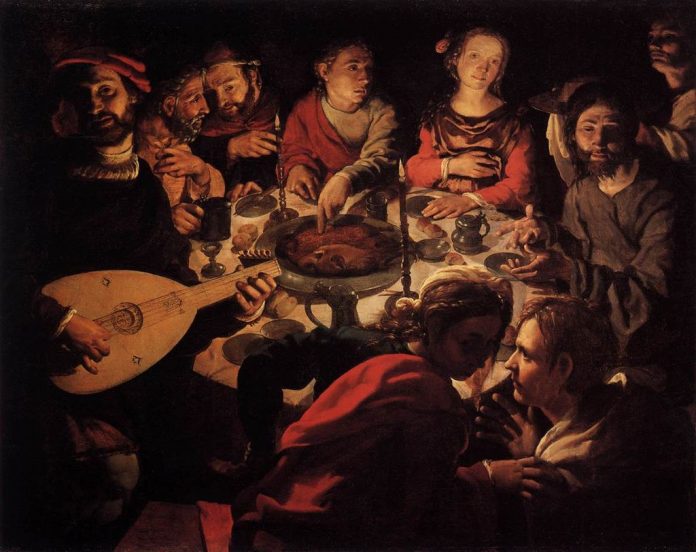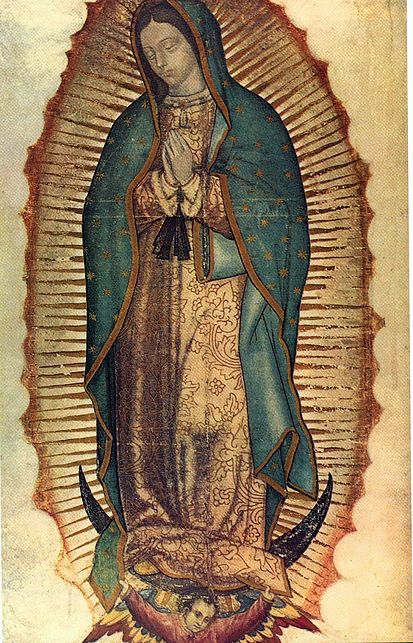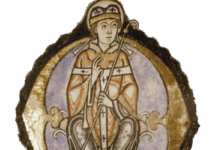
On this fourteenth of February, in the universal calendar we celebrate the ninth-century monks and missionaries Saints Cyril and Methodius, patrons of Europe, who translated the Liturgy into Slavonic, with Cyril constructing the Glagolitic and Cyrillic alphabets for this purpose. This vernacular allowed for the conversion of untold thousands into the Church. (See Father Attard’s reflection), as people unversed in Latin could hear the Word of God and preaching in their own language.
Cyril, whose original name was Constantine, upon his making vow in the Order of Saint Basil, took the name Cyril just fifty days before his death on this February 14, 869,. Methodius continued his missionary work alone until he joined his brother in eternity in 885.
They have always been venerated as the ‘Apostles to the Slavs’, and Pope John Paul II wrote a 1985 encyclical on them, Slavorum Apostoli, declaring them co-patrons of Europe, along with the great Saint Benedict.
So let us pray for Europe, which need desperately to find its faith once again, if it is to survive. As Belloc wrote, Europe is the Faith, and the Faith is Europe. Without Catholicism, Europe is just a geographical expression run by a gnostic coterie of socialist bureaucrats in Brussels, with a very fragile economic unity, about to be overwhelmed with those who do not share her once-cherished beliefs and customs.
We also celebrate, especially in the secular culture, Saint Valentine’s day, an emotive celebration of red hearts and dark chocolate, behind which is the memorial of a rather obscure 3rd century martyr, who has been adopted as the patron saint of lovers and would-be lovers. Many legends have grown up around him of miracles and good deeds, including that he secretly married young couples in prison, and fostered courtships, which I have known priests and others to do, perhaps not with the success of Saint Valentine. He helped to get the new husbands released from military duty – a source of vexation to the emperor. It is also said that Valentine would cut out paper hearts to remind these men of their vows. He is also said to have cured his jailer’s daughter of blindness, sending her a note on the eve of his execution, signed ‘from your Valentine’.
There is the rom-com version of the saint, with romance-of-the-moment, or the month, much of which only ends in bitterness. Is it better to have loved and lost, than never to have loved at all? I suppose that depends on what one has ‘lost’, and many, sadly, have been embittered by love; but God never intended it so. As someone once lamented, divorce means buying a house for a woman who hates you (or we may invert those ‘gender roles’ in today’s humpty-dumpty world). And what are we to say of the tragedy such turmoil brings to the children? As Scripture says, God hates divorce, but He loves love. There is a fine line between love and hate, and as the expression has it, extrema se tangunt, extremes touch each other.
And on a more hopeful note, let us also pray to Saint Valentine for good and holy marriages, with lots of joyful and exuberant Catholic children to give us hope and joy unto the succeeding generations. To close again with the great Pope John Paul, as the family goes, so goes society. And families, of course, are based on that holy wedlock which provides the greatest of natural joys. As Pope Benedict pointed out in his first encyclical on the theme of human love, it is the Church that ennobled marriage, bringing the sacrament back some way to the primordial bliss that prompted Adam to cry in joy out when he beheld the bride – a helper fit for him – that God had made: This at last is bone of my bones and flesh of my flesh. And the two shall become one.
Whatever the truth of his story, Saint Valentine offers hope that love is indeed not only worth it, but worth everything. Amor vincit omnia, wrote Virgil in his Bucolics, et nos cedamus amori, and let us too yield to love. For in the end, the one true love is divine, the love God has for us, and we for God, which never fails, and which supports – or should support – all other of our loves. Only so will love really conquer all.
Saints Cyril, Methodius and Valentine, orate pro nobis!










